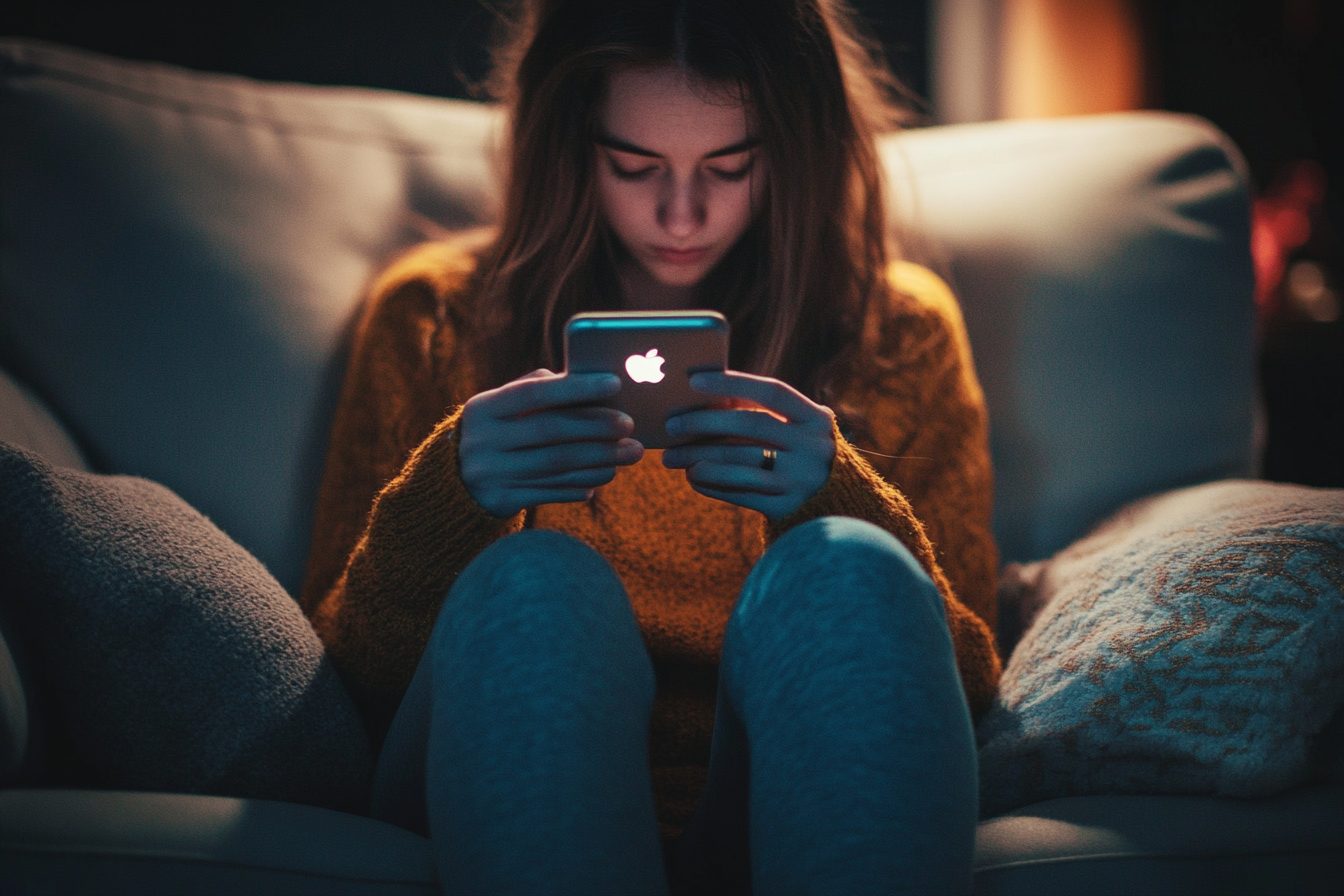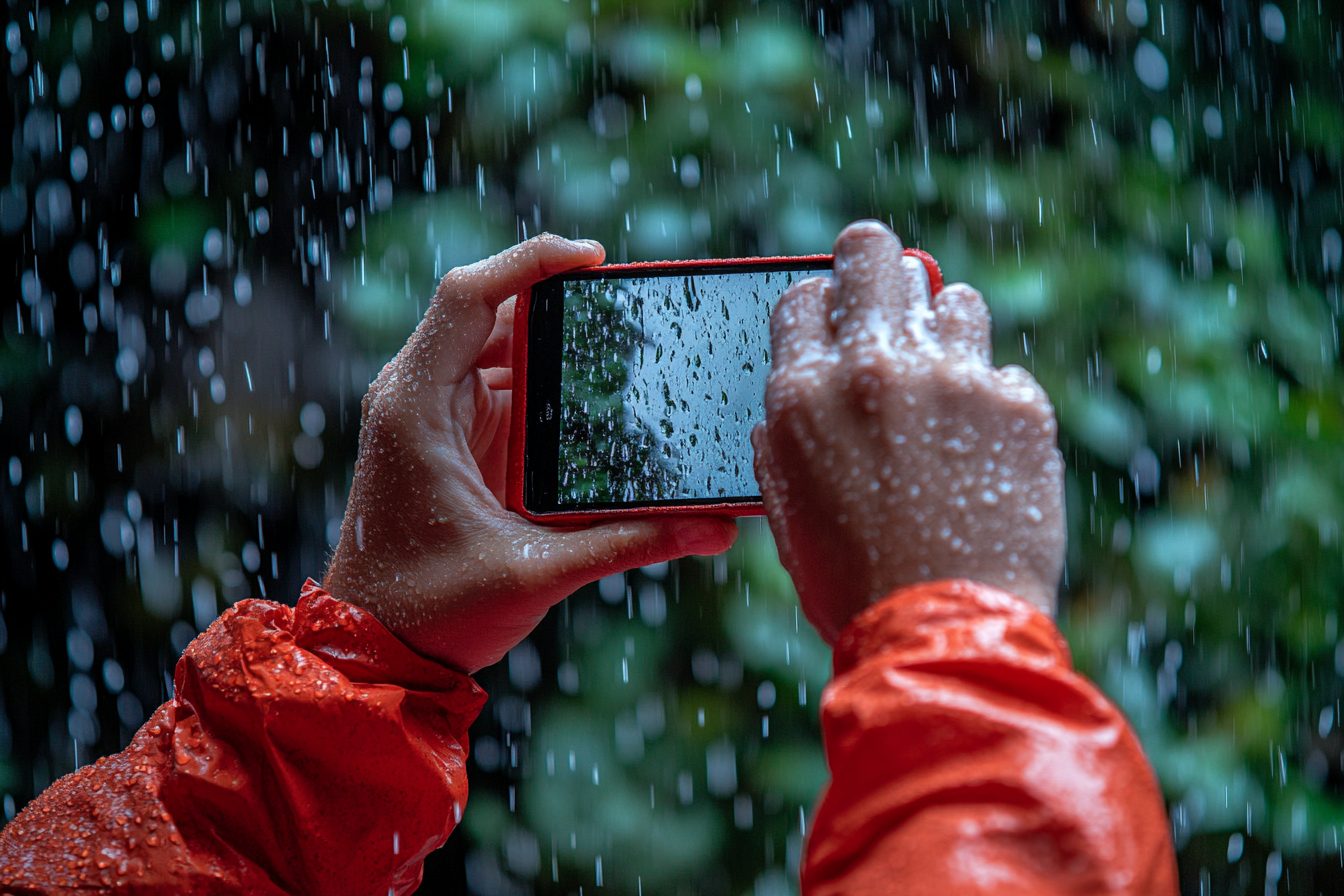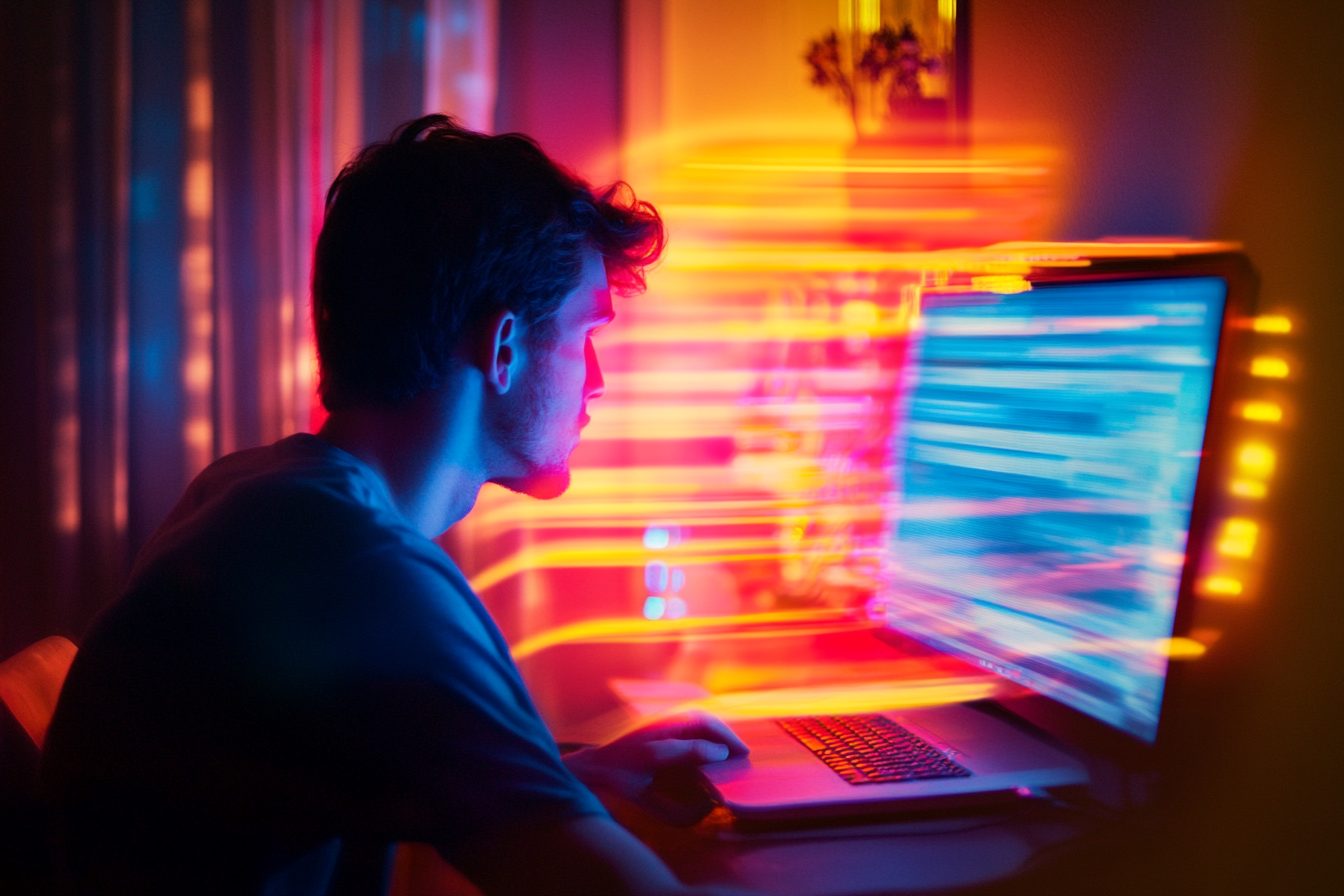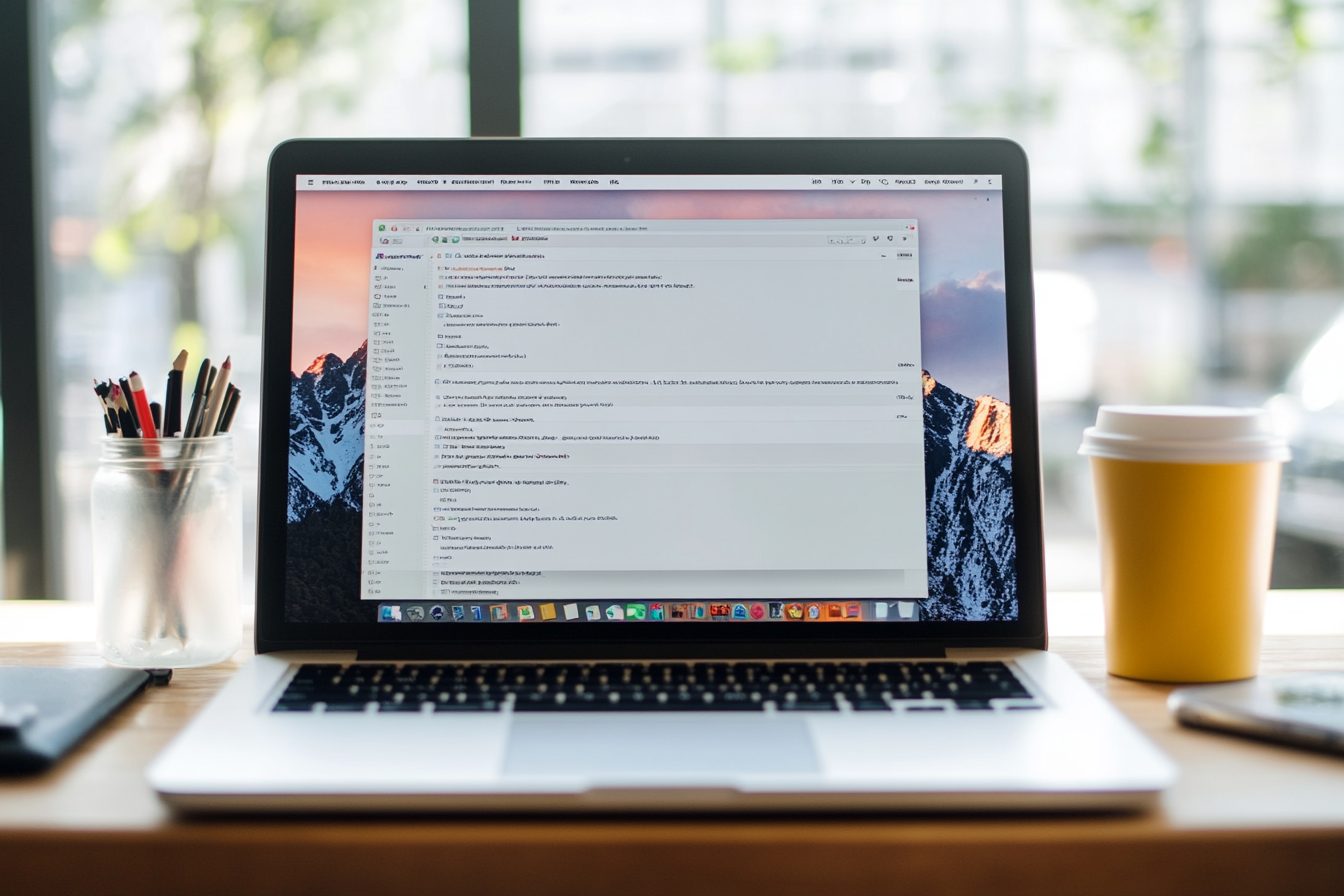Everything starts with an online article these days, and this one was no different. While scrolling the website, my eyes stopped at the heading “Digital Sabbath.” A concept implied not using any screens for 72 hours and allowing your brain to reset itself. I wish it stated something in the like, because the wisdom I stumbled upon while dooming at 1:47 am wasn’t really that helpful.
As someone who built interfaces with the intention of dragging users back to the app, I felt the need to undertake this challenge. Giving up technology for a weekend would act as self-improvement for the damages I have caused myself. I decided no using any devices from 6 PM Friday to 6 PM Monday.
No phones, computers, tablets, smartwatches, TVs, everything. The only device I had for telling the time was a basic alarm clock. Important people would be contacted prior, and I’d send out an emergency landline number to my family.
While thinking up offline tasks, I found myself feeling ridiculously ready — like someone getting prepared to step out into a world that looks like 1995. I woke up on Friday feeling satisfied and ready for the evening. I posted my plans on social media (oh the irony), then, in a ceremonious fashion, powered down and locked my devices in a drawer.
I even took it a notch further by wrapping the key in a note that said “Remember why you’re doing this.” The book I hid the note in, turned out, was not the easiest to fetch from. My wife witnessed this and shrugged before going back to looking at her phone. The first hour of my plan went better than expected.
I cooked dinner without the use of a recipe. Instead, I recalled previous cooking experiences and mashed everything together. Although the grilled chicken I served as the main dish was undercooked, I believed that counted as an acceptable loss.
While we were eating, I observed how frequently my hand twitched towards the vicinity of my phone. It was as if my phone actively waiting to take my head off. My brain combined with the need to check the weather or check the time relayed information; advertising constantly needed to be fed.
By the third hour, these phantom touches had almost become a new way of life. Every minute or so, I found a task that “needed” a screen: googling an actor’s name, checking what was in store for tomorrow, and firing off a work email. I was struck by how much everyday life technology had integrated itself within.
It was unsettling, like becoming conscious of the fact that I was breathing manually. That night, sleep was restless. I recognized the mind-numbing scrolling on my phone had transformed into an aid for sleep, in a way serving as white noise that masked the thoughts of the day.
Now, my head collided with work worries, existential fears, and an unusual curiosity about whether that actor from the sitcom from the 90s was still alive. My wife would later tell me that I was repeating “just one quick check” during our sleep. Saturday morning had a very peculiar timelessness to it.
The absence of constant timestamps through the phone made the hours stretch and contract rather uncontrollably. While making coffee and sitting on the porch, I noticed bird calls that I had never registered before. At those moments I felt transcended as those warriors of digital detox claimed, until my peace was further smashed by the leaf blower of my neighbor, and as if that wasn’t enough, I couldn’t even drown it out with podcasts.
The afternoon came and I started to feel the withdrawal symptoms kick in. My hands started feeling clammy, At this point, I began to lose focus and started pacing around my home, reading a page or two from various books I had lying around the house. In addition, I even energetically spruced up the spice rack.
At some point, I caught myself staring blankly at the drawer that had my devices locked inside. I wasn’t weak enough to open it, but I was willing to negotiate what kind of emergency would allow me to open it. That evening, we went out to dinner with some of our friends.
I attended the dinner like a time traveler; completely unaware of the new’s events of the day or any viral content. With every conversation they had, I began to feel more and more superior and excluded at the same time. It felt almost unreal and almost as if I was an ascetic digitally experiencing both FOMO and having some form of spiritual enlightenment at the same time.
It probably took me around 17 attempts to explain my detox experiment to each of my friends and each time I ended up annoying myself because I felt like I was going on and on about it as if going on some cross-fit or intermittent fasting journey. The actual crisis came Sunday morning. I wanted to go to the farmer’s market, but without Google Maps, I couldn’t figure out where to go.
Not having Spotify also made the ride to my car way too quiet. I also wanted to take a picture of wondrous cheese I came across, but without my phone camera, there was no way to capture the moment. Each of these missing pieces made me incredibly anxious.
From my perspective, my experiences face value became worse as I wasn’t able to share them. When did I start experiencing life for the sake of sharing? Most likely when I started designing features to provoke these behaviors.
Sunday afternoon was surprisingly productive. I got a home repair task done that I had been avoiding for months. In between turns in board games with my daughter, I was able to check work emails without feeling guilty.
I also managed to read forty pages from a book and, believe it or not, I did not check its Amazon rating even once. I started feeling something like calmness. Though this feeling was interrupted by me constantly calculating how many hours were left in my experiment.
Breaking down happened when my wife shared a family fight from the group chat. I tried to control my urge to get my phone and had to literally sit on my hands. It was two in the morning and I could not sleep because I was wondering how many emails I had to work on, how many messages I had to reply to, and how many important events I could be missing.
The thought of disconnection now turned into something more extreme – the thought of being digitally irrelevant. Anyone who has had to complete a self-imposed challenge will tell you the feeling is both comforting yet dreadful. I personally felt I had proven something to myself yet I also felt anxious and dependent at the same time.
On Monday, I made a list to incorporate more reading, mindfulness, and less reflexive checking to my regular life. I really believed these changes would help. On Monday, my experiment finished at 6 PM.
I wish I could tell you that coming back was smooth and dignified, but I will admit that it was extremely embarrassing. I stumbled to unlock the drawer, and shakingly turned my phone on like I was performing in a religious ritual. As I began receiving notifications, my email was overloaded with one hundred forty-seven new emails, and I had fifty-eight text messages and twenty-nine missed calls.
In that moment I felt both a sense of relief and overwhelming happiness. The moment that follows is equally cringey. For three hours, I was digitally binging and gorging myself on everything.
I answered messages from days ago while checking social media at least four times. I consumed any and all news articles and stories without any thought towards importance or relevance. All the while my breathing grew shallower, my neck and eyes began to hunch and my blinking turned to a minimum.
When my wife found me at 9 PM, she said, “How was your detox?” while laughing lightly. Her gentle tone made me feel slightly mocked. I was unable to look up and respond.
This is the aspect that articles regarding digital detox fail to address: the embarrassing return phase. The part where you go back to your devices and realize that your relationship with technology hasn’t really changed. Those 72 hours of trying to not use any devices did not change your brain that has been used for decades.
Your ambitious thoughts of being balanced fall apart as soon as you engage. I would like to say that two weeks after my experiment I still have enduring results, but during my waking moments I still pick up my phone almost immediately. The rush of dopamine is still present when I receive notifications, and post detox my habits have not changed at all.
What is left, and is now greatly increasing, is the remanence of the transformation of reality – which is the supremely troubling and not so helpful digital dependencies. Instead, I pay attention to the annoyance I get when I can’t find my devices. I realize the amount of time I disrupt focused work to check the messages that require far less instant attention than I imagine.
Does this solve anything? Not directly, but it is a start. Maybe the real insight into a digital detox is not so much in the refraining period but, rather, in the reflection it casts towards our daily actions.
The problem is overcoming technology’s many applications to humanity in a way that serves humanity rather than obliterating it; it is not merely surviving for three days without a gadget. At present, my phone remains face up beside me as I write this. I have already checked it twice during the last two paragraphs.
I am still trying to shed particular old habits, but at least now I am cognizant of them, which I suspect is progress of a sort. I might attempt again next weekend for twenty-four hours. Or perhaps just dinner.
Incremental progression towards balancing technology use from someone who initially provided clients with ways to stay glued to their smartphones. So, if you happen to be reading this on your device at one in the morning, maybe trying a digital detox is something you might consider. Just be prepared for everything that comes back.
The technology is no different than the user when left unattended.








